“Piggy” does plenty to satiate horror fans, but its real power lies in its potent exploration of bullying, body image, and adolescent angst.
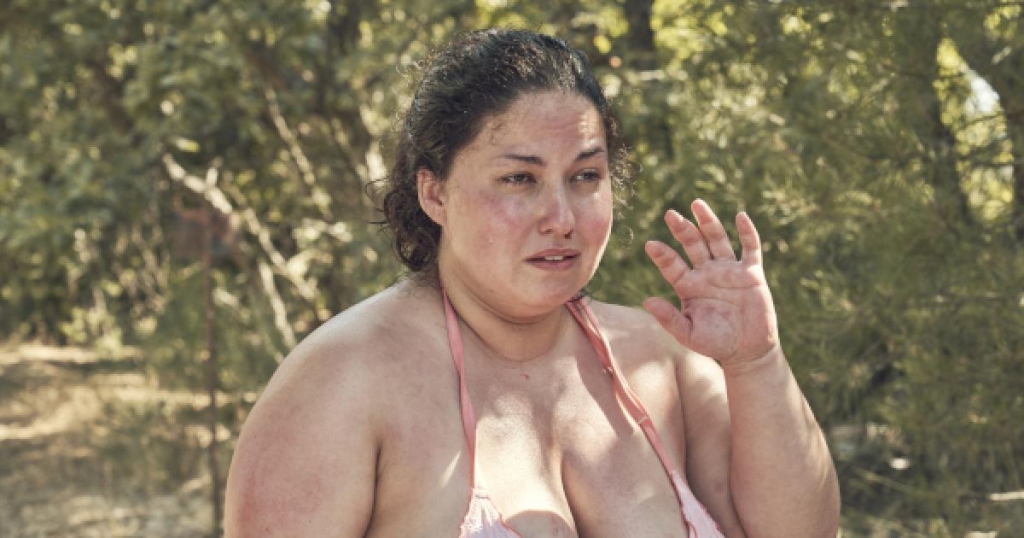
I will admit that I have been anxious ever since Jamie Alvey asked me to cover her column, Frights and Feelings, this month. Analysis and emotions are not my strong suits by any means — or at least that was the case in school — but I want to give this an honest go because I have seen very few people address the significance of Cerdita/Piggy (2022).
Reception to the movie has been positive for the most part.
However, I have seen very few people consider this a story, at its very core, about the struggles many adolescents face wherever body image, bullying, and familial conflict are concerned.
Picture, if you will, a young heavy-set girl — probably twelve or thirteen — on a bus on the way back to school from a field trip.
She has friends, sure, but they are all paired off somewhere else on the bus. She is all alone, left to wonder why no one likes her enough to sit by her. She can be brash but not mean and unlikable, she thinks. She chooses not to dwell on it for very long.
When the bus reaches the school, she shuffles down the narrow aisle at a slight angle so that she does not bump seats continually. As she descends the stairs, she missteps and falls to the pavement face-first. Most people were already venturing back to wherever they needed to go, so she thinks she is in the clear and that no one saw the fall. Of course, she could not be more wrong. She hears one boy talking to another about it, laughing all the while. And he says, “It was nasty, man.”
The girl feels the heat rise to her cheeks and the shame wash over her entire being.
She does not tell anyone, but the boy’s words haunt her. She notices younger girls on the bus ride home leaping out of the way so that she cannot bump into them as she gets off the bus, and she becomes aware of them whispering and giggling about her. Time becomes unreal. Days pass, and then weeks do, too. She has been eating less, avoiding one of her favorite vices, sending her into the dangerous mental and physical territory.
He may not remember this incident, but she sure does.
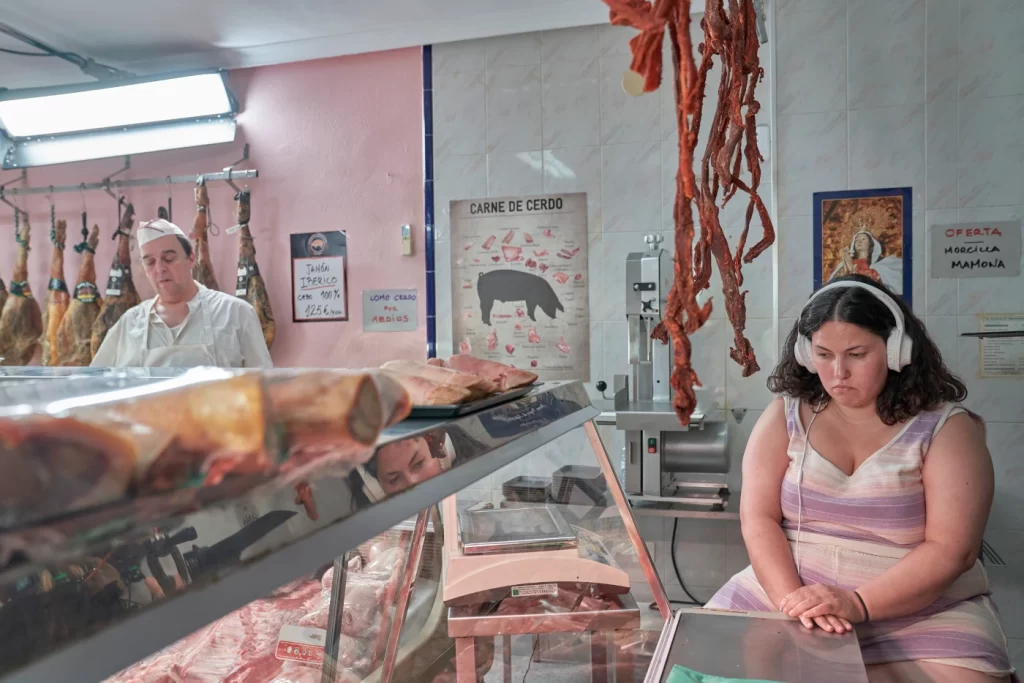
As she struggles with her body image and self-esteem, there are a few wins that make her hopeful: the first plus-size winner of America’s Next Top Model, the plus-size models on Project Runway, and the success of actresses like Melissa McCarthy and Chrissy Metz. There is the evolution of attainable fashion with brands like Torrid and Eloquii.
Years later, the success and fanfare around actor Harvey Guillen give her a lot of hope, too.
There, of course, have been moments of regression, though, like the larger friend being the one who kills the stripper in Rough Night (2017) and the misconception that larger girls cannot be desirable by most people’s standards, like with The DUFF (2015).
If you have not figured it out yet, the girl is me. I have avoided talking to most people about these woes that have plagued me for over half my life.
Watching Piggy at freshly 30, though, put a lot into perspective for me, and honestly, I think has motivated me to be more proactive in facing my own body dysmorphia and trying my best to promote the idea that we are every bit as deserving of a place in society and pop culture as anyone else.
Piggy begins with teenager Sara (Laura Galán) sitting in a carnicería as her Padre, Tomás (Julián Valcárcel), butchers some meat. She is minding her own business and working on homework when a group of girls — Maca (Claudia Salas), Claudia (Irene Ferreiro), and Roci (Camille Aguilar) — show up as Claudia is running an errand for her mother. When they leave, one of the girls snaps a photo of Sara and posts it on social media, referring to her as “Piggy.”
It is important to note that Claudia does not actively participate in the bullying, but she also does nothing to circumvent it, either.
Viewers can deduce that Claudia and Sara may have been friends before as the two girls exchange looks of different types of remorse and desperation here and throughout the movie.
In real life, this does happen in some capacity.

People of all shapes, sizes, ages and genders are mocked for one reason or another.
For instance, someone will be at a gym and have their photo taken and posted without their consent. (Take this instance of a model body shaming an older woman at the gym back in 2017, for example.) It is a “damned if you do, damned if you don’t” sort of thing. We are, sadly, always susceptible to this kind of exposure and spectacle thanks to technology and some human beings’ continued lack of empathy and sympathy for others.
Thankfully, technology can be a two-way street that allows bullies to be called out, such as this instance when a woman who did not tolerate a man taking pictures of her at the gym without her consent took to TikTok with her story.
Sara looked at the image later to find that many of her peers had interacted with the post and positively reinforced the girls’ behavior. Suffice it to say Sara becomes distressed. Who could blame her? Countless factors contribute to how a body is built, and few are within a person’s control, especially for a teenager.
Tensions come to a head when Sara goes to a nearby pool.
Our girl is absolutely adorable in her bikini, a garment that many try to avoid. Of course, the obnoxious trio is there and continues teasing Sara. It is beyond infuriating and pushes the boundaries of comfort. When they have had enough of their apparent fun, nearly killing her in the process, the girls swipe Sara’s knapsack, leaving her with no change of clothes, towel, or cell phone. She must trot down the countryside roads in only her bikini with the sun beating down on her. She is embarrassed, scared, and alone.
She endures further teasing from some different jackasses who drive up behind her.
Galán excels at portraying anguish and frustration throughout the entire movie but particularly in this scene.
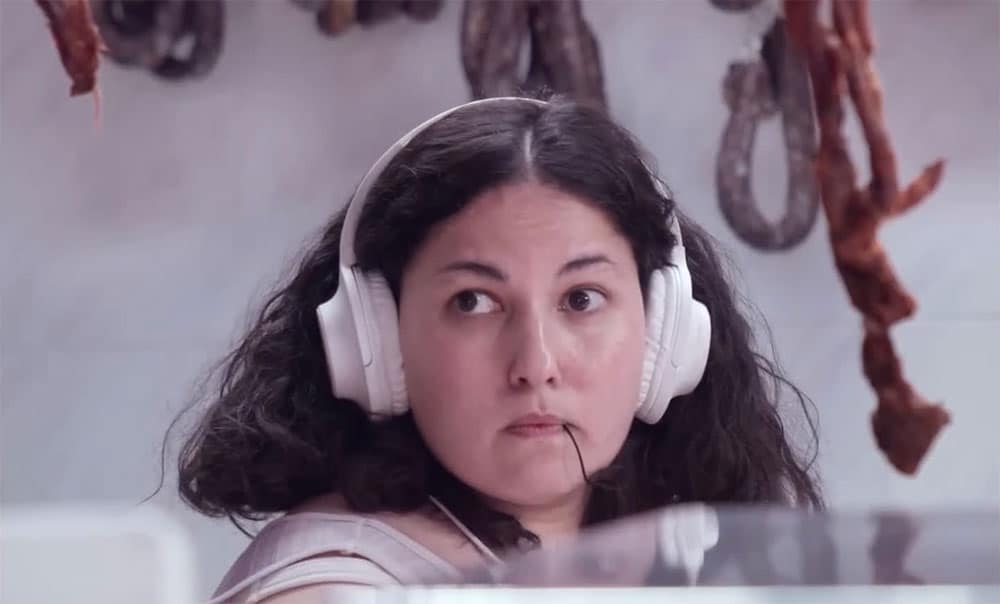
Not only does Sara have to try to escape these road bullies, but she also is compelled to try to hide her body from them. She shields her chest and stomach as best she can with her surely sore — from the swimming, the walk, and the growing sunburn — arms, trying her damnedest to curl into herself and try to hide her curves.
I cannot say we have all been there, but I certainly felt this in my soul.
Once I began to feel uncomfortable in my own body — this dastardly thing I am stuck with from now until the end of my days — I became hyper-aware of everything that could draw attention to my size and wanted nothing more than to feel safe and comfortable in my skin again. Unfortunately, changing my appearance cannot be instantaneous and requires an overwhelming amount of drive and dedication.
Once Sara is free of the road bullies, she stumbles across her main bullies being kidnapped by El Desconocido (Richard Holmes). He was at the pool at the same time as the girls earlier and was dragged into the trio’s teasing. (I honestly thought nothing more of his existence between his appearances, so I was genuinely shocked to see him again.)
This is the first time Sara must decide whether she will be the better person and try to save her bullies or look away like she does not see these three girls being forced into the back of a dodgy van.
El Desconocido seems to have no interest in harming Sara, though, thankfully, and even leaves behind her stolen belongings.
Claudia notices Sara behind the van and pleads for help, but Sara simply looks on, standing there as the van peels off. Ferreiro does a phenomenal job here with Claudia’s desperation and sense of betrayal now that the tables have turned. Simultaneously, Galán’s bewilderment and inner turmoil ooze off the screen to make for an incredibly powerful sequence. The details are fine but they pack a punch.
She avoids eye contact with others, tenses when she is addressed, and chews on her hair when she is nervous; this makes for a more dynamic character and immersive viewing experience.
My anxiety causes me to behave similarly — and for far more trivial reasons. I even have a nervous tic, not unlike Sara’s hair chewing, where I unconsciously tuck my chin into my shirt, which I simply call “my turtle thing.”
This, of course, poses the question: Would you save your bullies in a scenario like this?
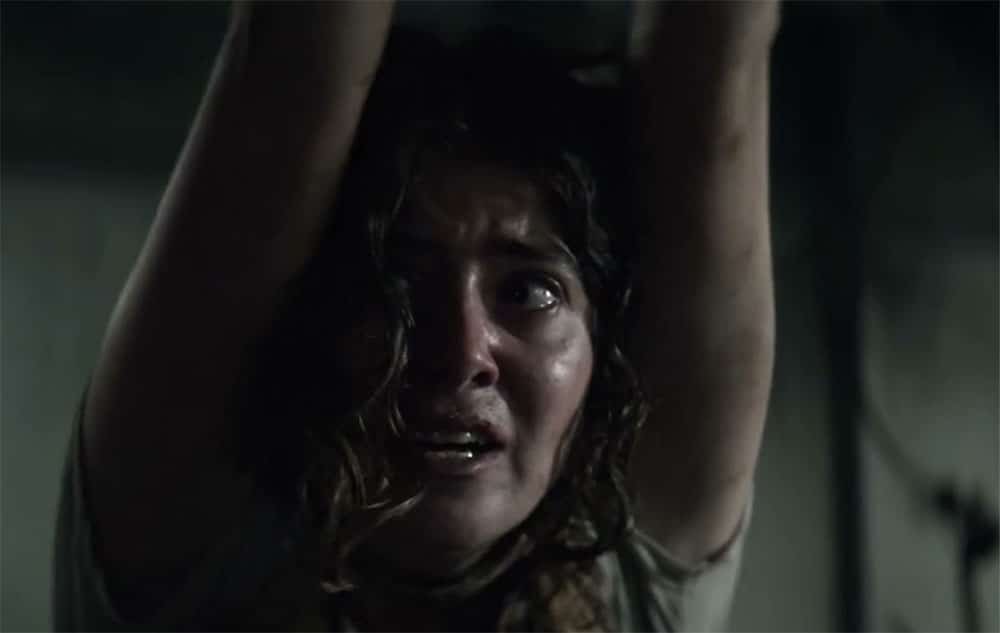
Is this a morally gray thing or solely morally black and white? The movie never really provides a definitive answer to this question. Still, it does offer plenty of time for viewers to ponder their answers on the matter as we watch Sara mull over what to do and handle the guilt as Claudia’s Madre, Elena (Pilar Castro), and Roci’s Padre (Fred Adenis) crop up and express their grief over their missing children.
Should she intervene? Should she tell someone what she saw? Is this karma coming for Claudia, Maca, and Roci?
Everything continues to escalate, particularly when Sara’s Madre, Asun (Carmen Machi), learns about the missing girls being bullies. She fiercely defends her daughter publicly but restricts her daughter’s diet in private. She victim blames her own child and ridicules her if she sneaks food and comfort eats.
This begs to question of whether Asun, a woman who would likely be considered plus size as well, is projecting her own insecurities and shortcomings onto her daughter rather than trying to nurture and guide her through these trying and traumatizing times.
Sara calls her own mother fat and expresses her hatred of her.
We have all butted heads with our parents over one thing or another, and this movie depicts the harshly organic tension between parent and child. This culminates when El Desconocido targets Sara’s parents and even her younger brother (Amets Oxtoa) that night. Their fates are left open-ended, but Galán, again, gives a gut-wrenching performance as Sara screams at her mother that she hates her one minute but is desperately pleading for her survival in the next instance.
Sara is at a tender age when she believes she is grown enough to know what she wants and needs without her parents’ help, but in actuality, she still very much loves her mother and seeks her approval despite how infuriating she can be at times.
What Carlota Pereda’s Piggy does is humanize someone who does not fit contemporary western beauty standards.
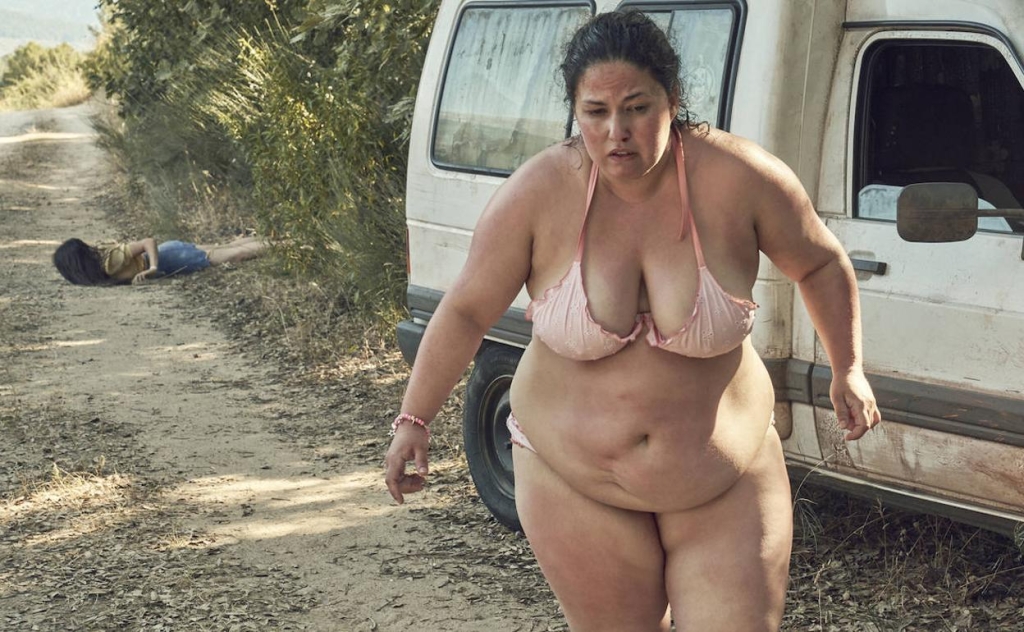
It shows that girls with bigger bodies are just as smart, talented, resourceful, desirable, valid, and deserving as anyone else.
Everyone deserves to see themselves represented across all types of media. Sara is a beautiful and strong final girl, she is just as capable as final girls like Mia in Evil Dead (2013) and Needy in Jennifer’s Body (2009), and I wish she existed when I was at my most vulnerable. I am, however, exceedingly relieved that this sort of representation is available for those who are facing similar problems now.
Let us all hope that this is just the beginning of a shift in body positivity and representation of people of all sizes.
Let people from all walks of life have the opportunity to kick ass and take names now. We have progressed beyond just one demographic having this sort of glory and importance.


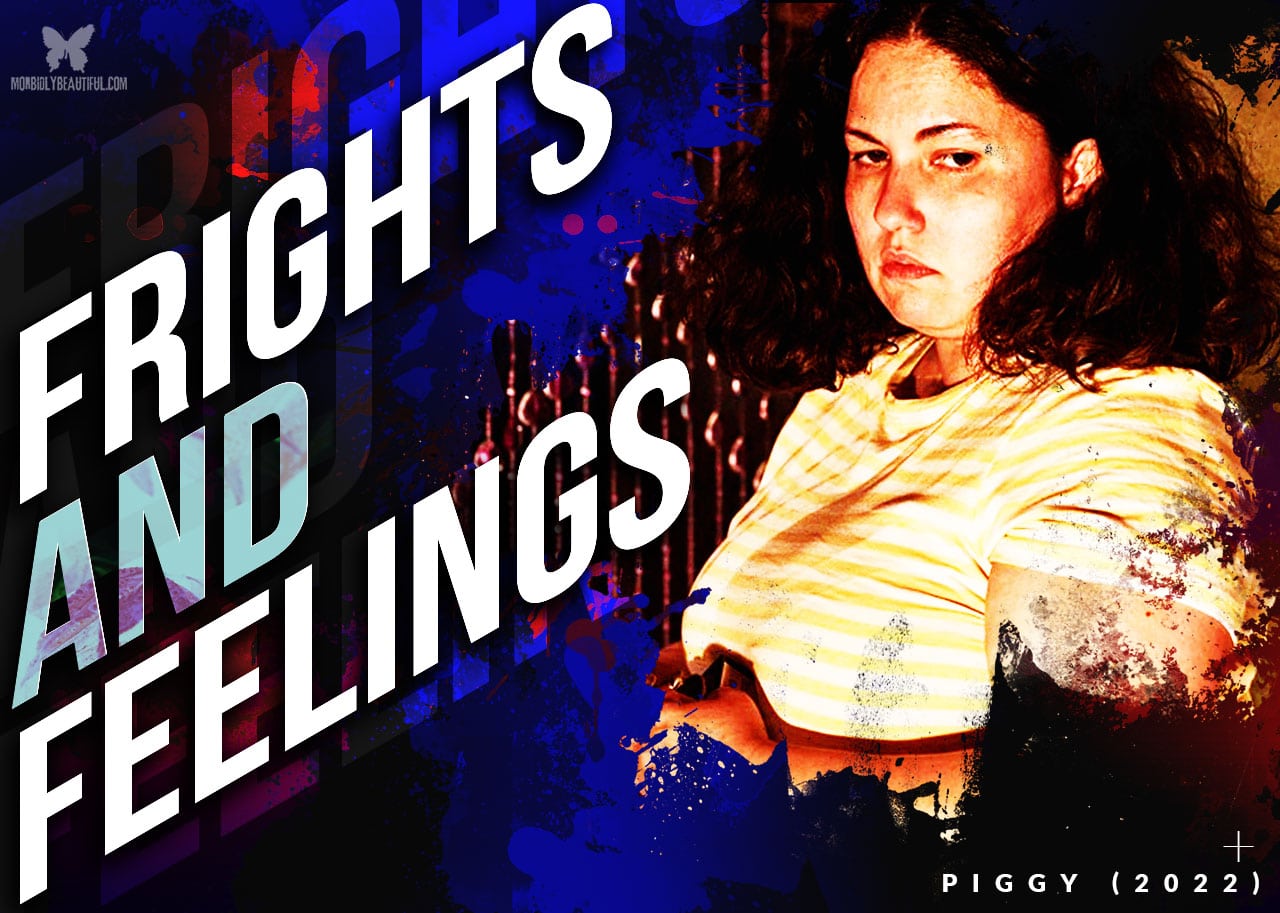












Follow Us!